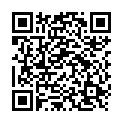|
|
|
| Module code: E506 |
|
1V+1U (2 hours per week) |
|
2 |
| Semester: 5 |
| Mandatory course: yes |
Language of instruction:
German |
Assessment:
Written examination
[updated 11.03.2010]
|
E506. Biomedical Engineering, Bachelor, ASPO 01.10.2011
, semester 5, optional course, course inactive since 28.11.2013
E506 Electrical Engineering, Bachelor, ASPO 01.10.2005
, semester 5, mandatory course
|
30 class hours (= 22.5 clock hours) over a 15-week period.
The total student study time is 60 hours (equivalent to 2 ECTS credits).
There are therefore 37.5 hours available for class preparation and follow-up work and exam preparation.
|
Recommended prerequisites (modules):
E101 Mathematics I
E102 Physics I
E104 Fundamentals of Electrical Engineering I
E201 Mathematics II
E202 Physics II
E203 Fundamentals of Electrical Engineering II
E301 Mathematics III
[updated 13.03.2010]
|
Recommended as prerequisite for:
|
Module coordinator:
Prof. Dr. Michael Igel |
Lecturer:
Prof. Dr. Michael Igel
[updated 13.03.2010]
|
Learning outcomes:
After successfully completing this module, students will have a fundamental understanding of the communications technologies typically used in residential and non-residential buildings. They will be in a position to use their knowledge to plan projects and independently develop solutions to specific technical problems in the field of building automation and control. Specific skills taught include:
- Application of the concepts used in building services engineering
- Using the Electrical Installation Bus (EIB) to automate processes in
residential and non-residential buildings
- Planning and implementing network topologies based on the EIB
- Process-specific selection and deployment of EIB actuators and sensors
[updated 11.03.2010]
|
Module content:
1.Conventional low-voltage distribution technology
2.The “Smart House” concept
3.Fundamentals of serial communication
3.1.Serial data transfer
3.2.Synchronous and asynchronous communication
3.3.Data flow control
3.4.Data security (parity, Hamming distance)
3.5.Data transfer protocols (RS232, RS422, RS485)
4.The EIM communications bus
4.1.Topology
4.2.Multilevel structure
4.3.Line couplers and area couplers
5.EIB – Auxiliary power source
6.EIB – Bus components
6.1.System devices
6.2.Actuators and sensors
6.3.Addressing
6.4.Bus communication timing sequence
[updated 13.03.2010]
|
Teaching methods/Media:
Lecture notes, video projector, exercises using building automation and control components
[updated 11.03.2010]
|
Recommended or required reading:
Rose, Michael: EIB für die Gebäudesystemtechnik, Hüthig
Beiter, Robert: Installationsbus EIB/KNX Twisted Pair, Hüthig & Pflaum
Vogt, Dieter: Elektro-Installation in Gebäuden, VDE Verlag
[updated 11.03.2010]
|


